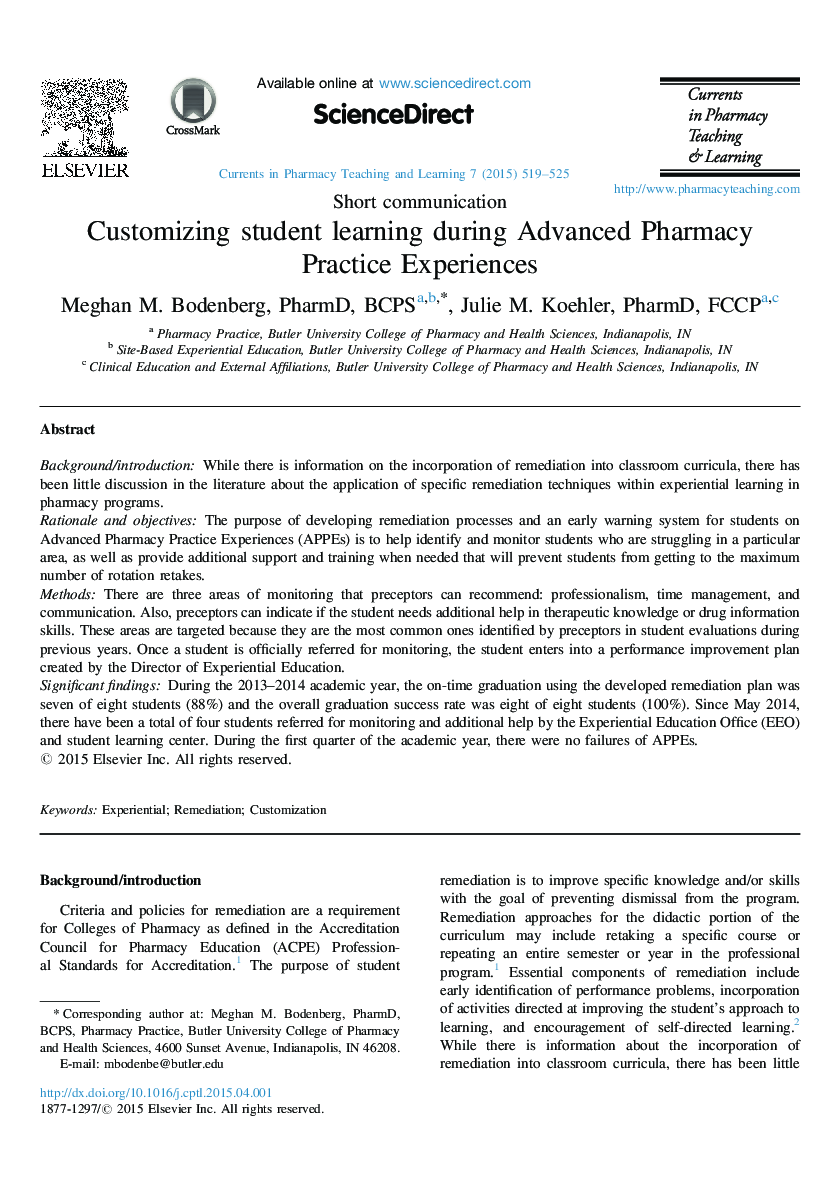| کد مقاله | کد نشریه | سال انتشار | مقاله انگلیسی | نسخه تمام متن |
|---|---|---|---|---|
| 352992 | 618762 | 2015 | 7 صفحه PDF | دانلود رایگان |
Background/introductionWhile there is information on the incorporation of remediation into classroom curricula, there has been little discussion in the literature about the application of specific remediation techniques within experiential learning in pharmacy programs.Rationale and objectivesThe purpose of developing remediation processes and an early warning system for students on Advanced Pharmacy Practice Experiences (APPEs) is to help identify and monitor students who are struggling in a particular area, as well as provide additional support and training when needed that will prevent students from getting to the maximum number of rotation retakes.MethodsThere are three areas of monitoring that preceptors can recommend: professionalism, time management, and communication. Also, preceptors can indicate if the student needs additional help in therapeutic knowledge or drug information skills. These areas are targeted because they are the most common ones identified by preceptors in student evaluations during previous years. Once a student is officially referred for monitoring, the student enters into a performance improvement plan created by the Director of Experiential Education.Significant findingsDuring the 2013–2014 academic year, the on-time graduation using the developed remediation plan was seven of eight students (88%) and the overall graduation success rate was eight of eight students (100%). Since May 2014, there have been a total of four students referred for monitoring and additional help by the Experiential Education Office (EEO) and student learning center. During the first quarter of the academic year, there were no failures of APPEs.
Journal: Currents in Pharmacy Teaching and Learning - Volume 7, Issue 4, July–August 2015, Pages 519–525
